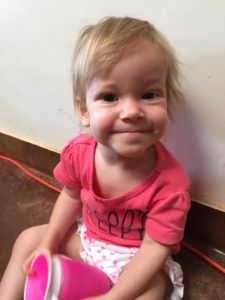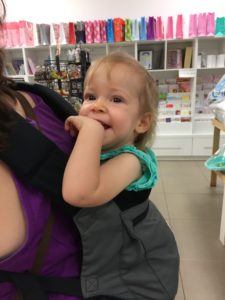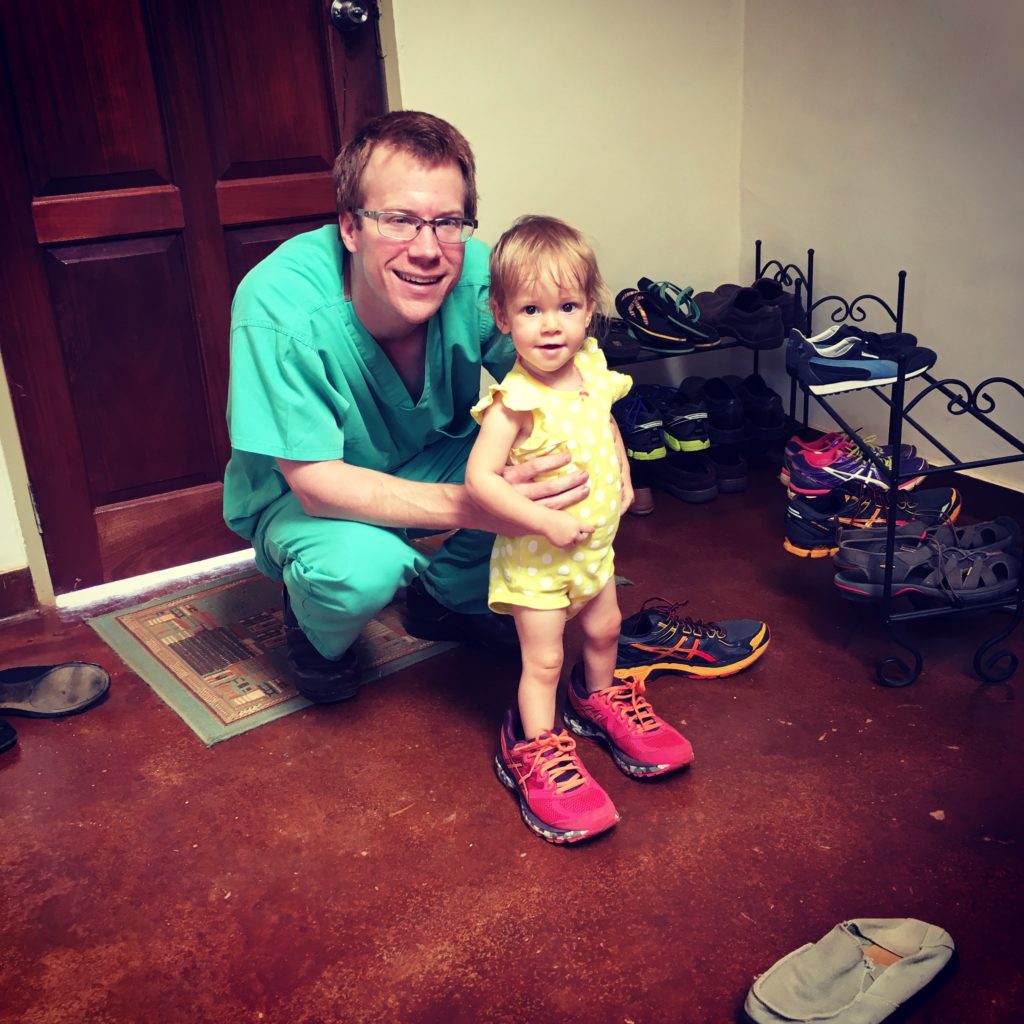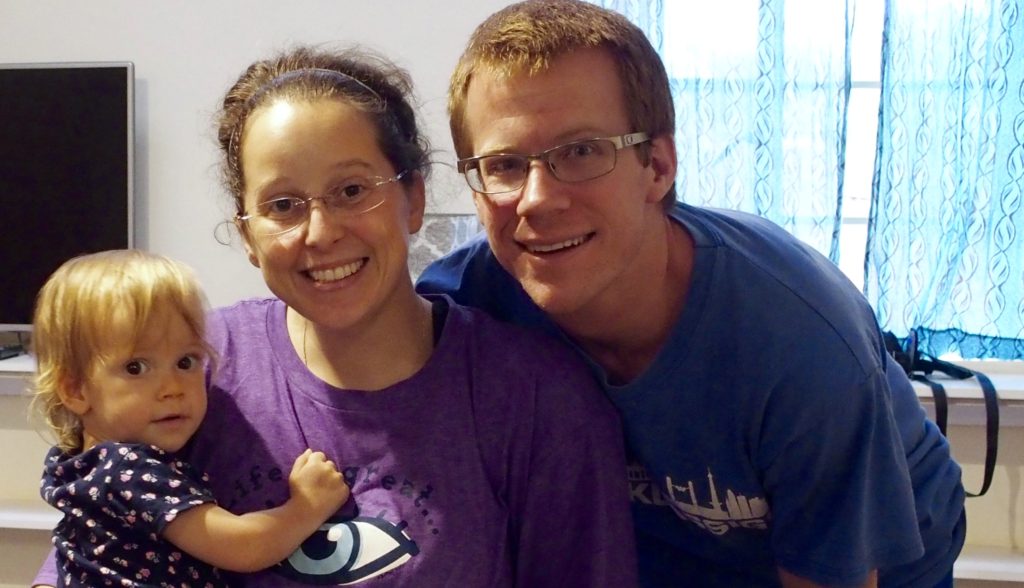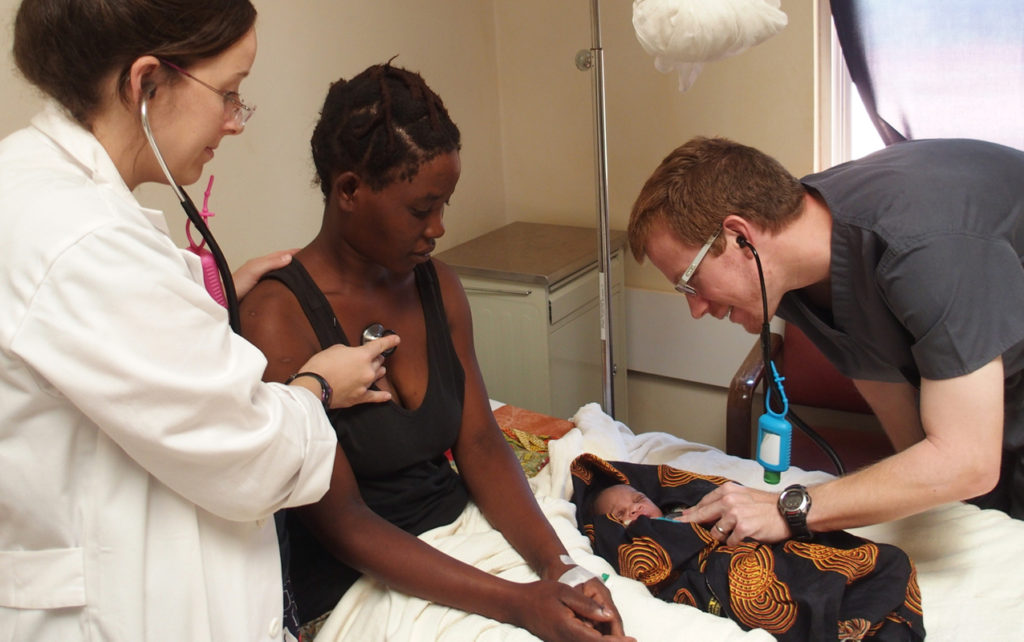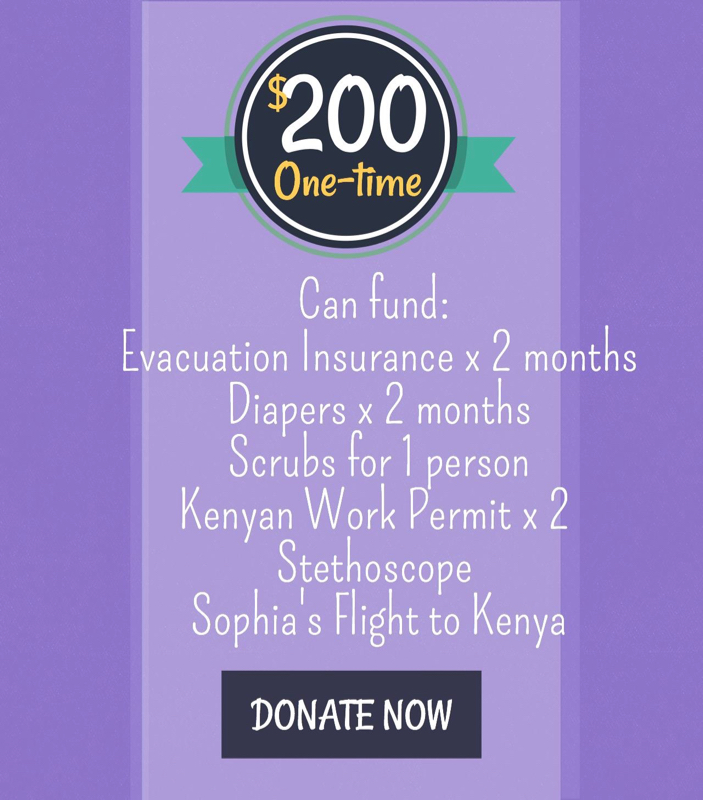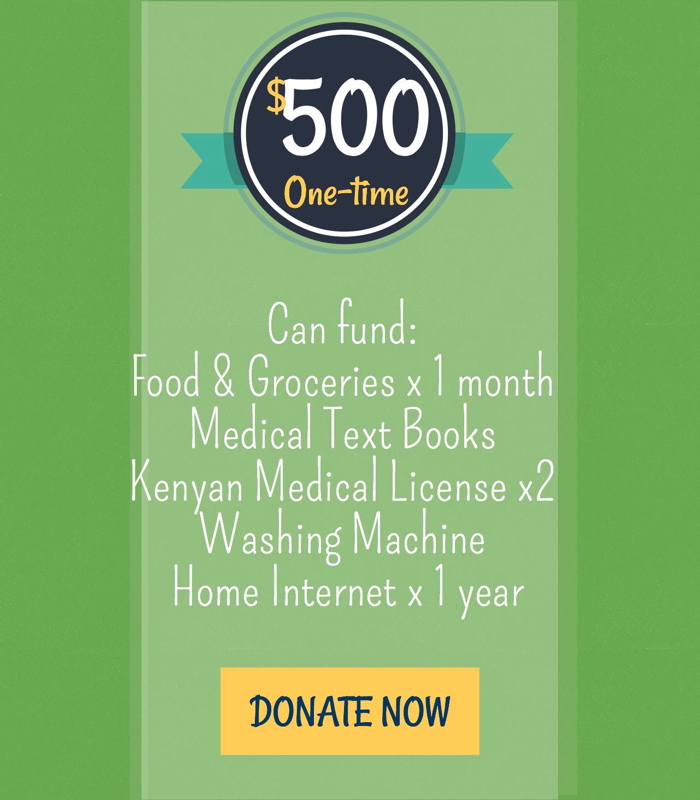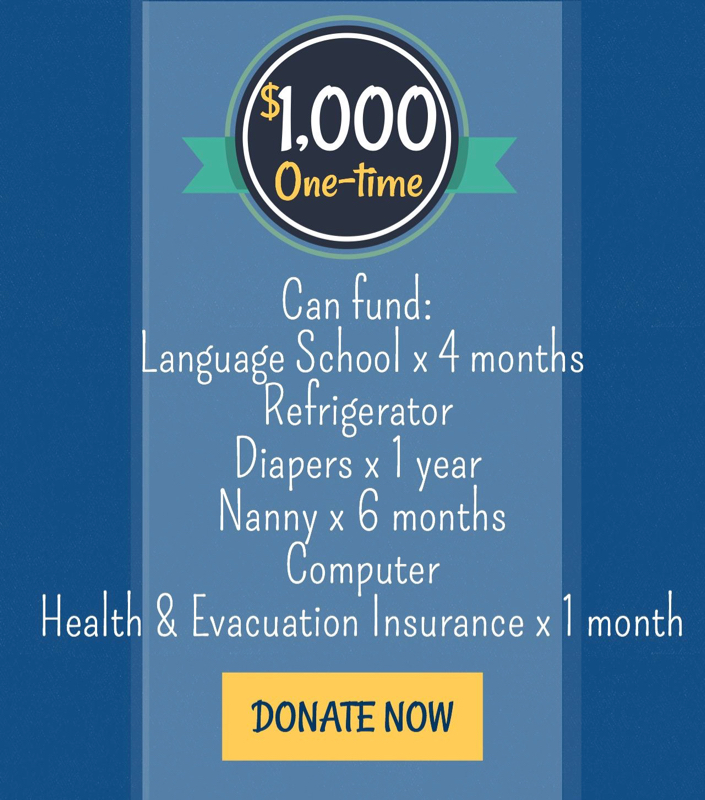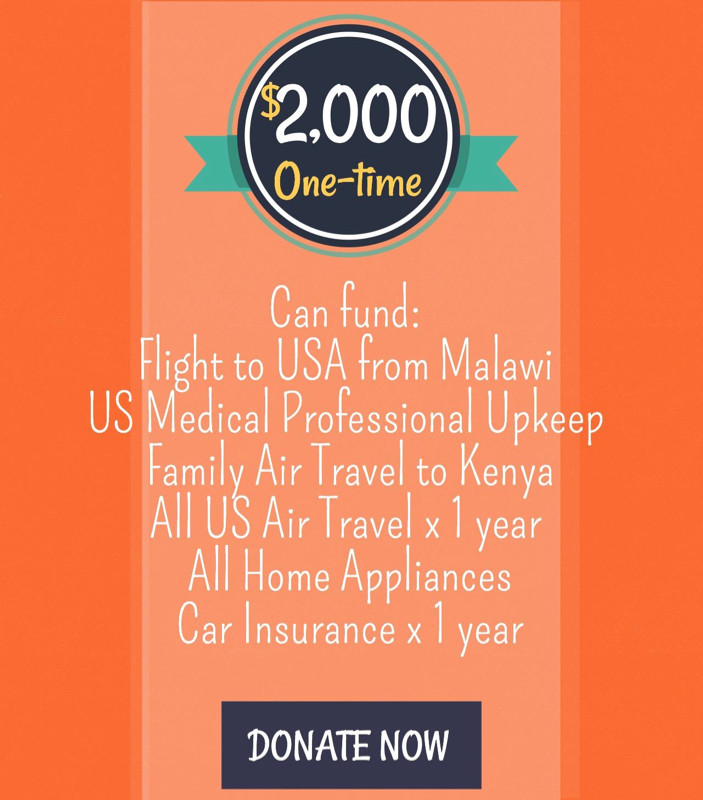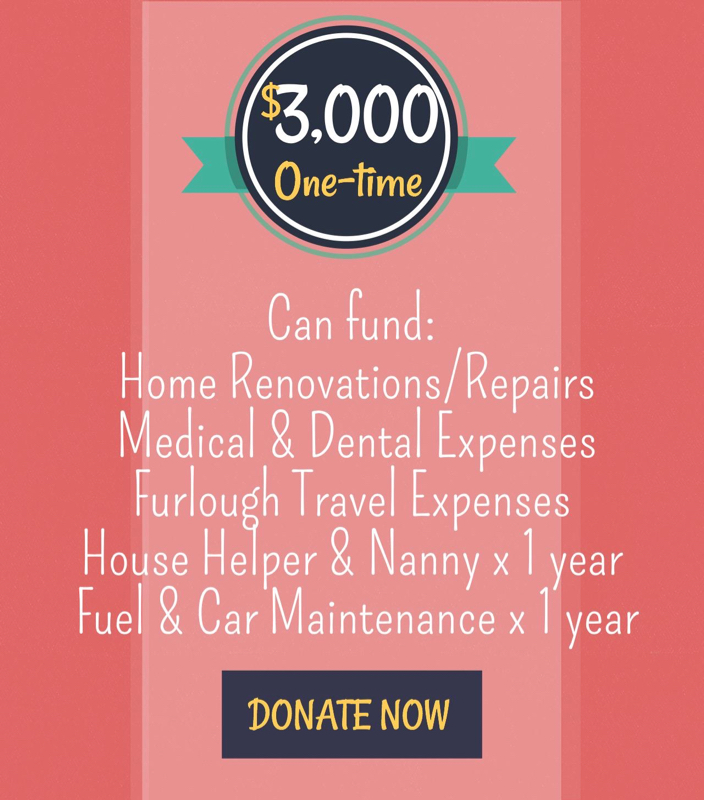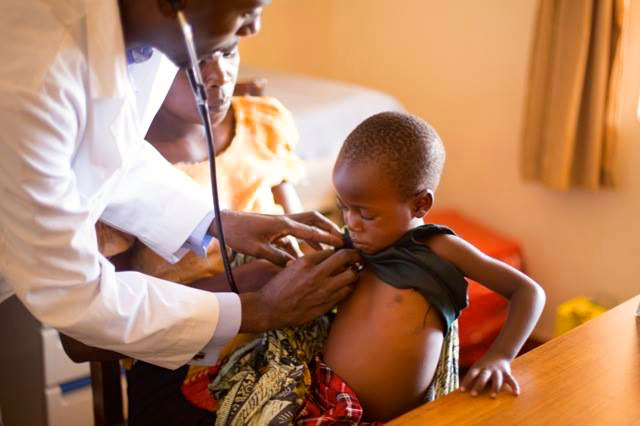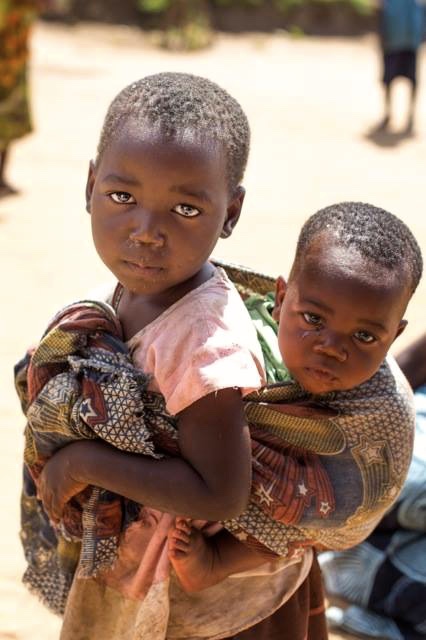“Dr. Jared, I do not see an eye,” has to be the strangest statement I have heard in my medical career. Initially, I thought the Labor & Delivery Nurse was just trying to examine the eye, and the newborn was not cooperating. Not uncommon since they are babies. However, later, I began a routine exam of the newborn baby girl, and sure enough, she was missing her right eyeball. This is very uncommon, and is even considered rare. I have only seen one other child in my career who was born without an eyeball.
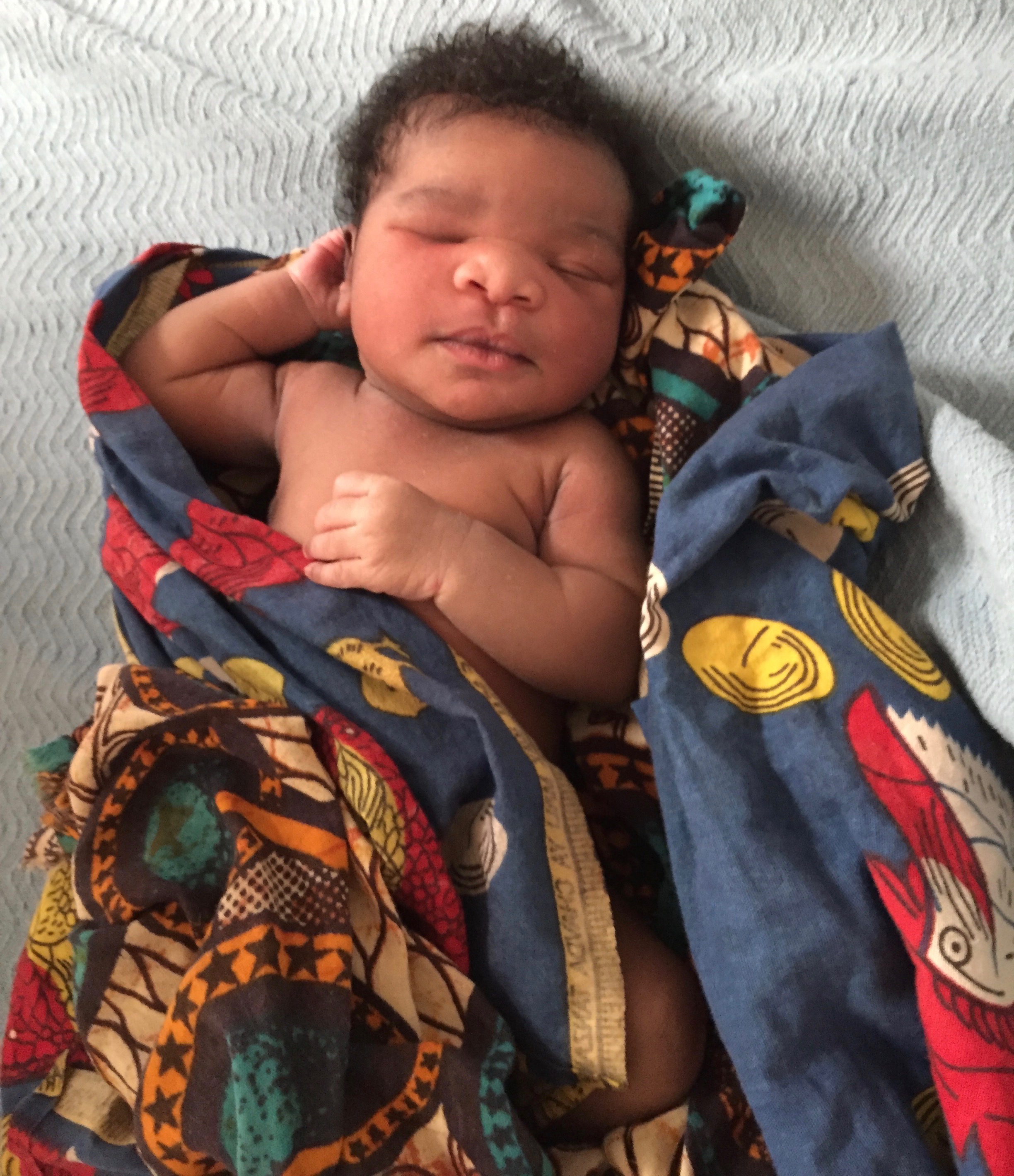
Fortunately, when I examined the baby her left eye looked normal. My mind went straight to the medical side of this situation, and I sought out causes of this condition. I discovered that “congenital anophthalmia” (born without an eye) is sometimes due to a genetic cause and occasionally there are environmental factors such as vitamin A deficiency. In my initial exam, I could not find any physical evidence of any genetic syndromes or cardiac defects. Of course, my next concern was the intact left eye which praise the Lord was normal on my exam.
With those two question out of the way, my mind began to fill with so many others. What is the chance of blindness or other problems in the left eye? What needs to be done with the empty eye socket, and how frequently does this child need to be followed up by an eye doctor? How would we get the child established with the only eye doctor in the Capital?
While I was asking myself all of these questions and trying to come up with a plan for the child and family, one question hit me:
How is the family and community going to react to this baby being born without an eye?
Now, this a perfect example of how in medicine the social, emotional, and spiritual component is just as important as the physical. Since we have been in Malawi, we find ourselves asking questions about the family and community constantly because there are so many different social and spiritual beliefs within the surrounding community. In many villages in rural Malawi, children or even adults with a physical or intellectual disability or a genetic syndrome are often treated as lesser human beings. Some are cast outside of the family, beaten, or even killed. Why does this happen? Often in these situations, many living in the villages believe the person or their family is cursed by someone else. That “curse” results in the child or adult being ostracized from their community.
Knowing the cultural risks, the first thing that we did was talk to the mother of the baby and prayed with her.
Also, one of the local pastors spent time with the family in prayer and counseling. Though the family had a Christian background, in this culture Christianity and other beliefs are often a mix of biblical teaching and tribal traditions. The family did not believe there was a curse placed on the daughter and were glad there was hope she would have sight in her left eye.

Sadly, the baby was supposed to come back to the hospital last week for a routine follow-up and unfortunately never came. We sent someone to their village to find them and learn why, but were told they had relocated to a town closer to Child Legacy Hospital. Now we wait to find out if they can be found. We pray the newborn and her parents are doing well, but it is possible we might never know what happened. This is the reality of life in rural Africa. Being lost to follow-up is a huge problem which we battle on a daily basis with our patients and their families.
We pray the community they have resettled in will accept and love the child as they would any other new baby in the village. We also pray the baby is getting the routine medical care she needs as a newborn. Initially some in the community might not welcome the child. We pray once we find them we can work with that community so they will understand more and realize God is full of love and more powerful than all the other evil spirits combined.
We enjoy tropical medicine and the challenges it presents medically, but we have truly come to appreciate opportunities to care for the whole person. We have been given the chance to learn about various cultural and spiritual differences as well as share our faith with our patients, the surrounding community, and their leaders.
Like the baby girl and her family in this story, there are many people in our community who need hope. Please pray for God’s work to continue.
We look forward to continuing to share Christ’s love during our last couple weeks in Malawi. We are excited for our journey in Kenya and the chance to bring more hope into the community through Christ’s love.
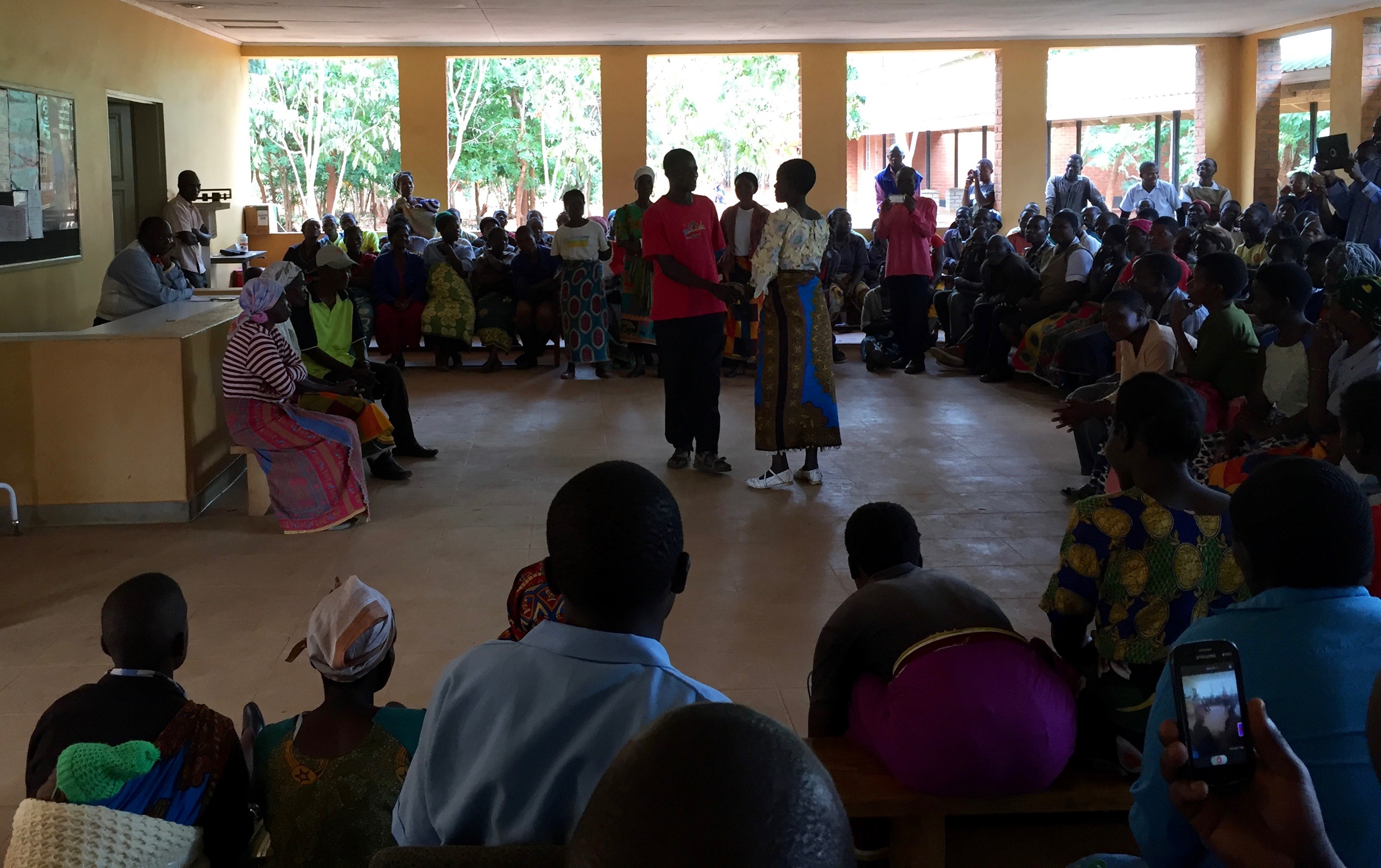 On December 1st, our hospital presented an awareness event for the entire staff and community for World AIDS Day. The staff of Child Legacy Hospital serve the community to bring glory to God. We are here to mourn with our community for those who have been killed by this terrible disease and support those who personally battle HIV every day of their life. Keep in mind that learning in Malawi can be a very visual experience with song, drama, and dance. Everyone who participated did a wonderful job and the staff and community really appreciated the event (Click on the PHOTO to watch a short video of the performance).
On December 1st, our hospital presented an awareness event for the entire staff and community for World AIDS Day. The staff of Child Legacy Hospital serve the community to bring glory to God. We are here to mourn with our community for those who have been killed by this terrible disease and support those who personally battle HIV every day of their life. Keep in mind that learning in Malawi can be a very visual experience with song, drama, and dance. Everyone who participated did a wonderful job and the staff and community really appreciated the event (Click on the PHOTO to watch a short video of the performance).
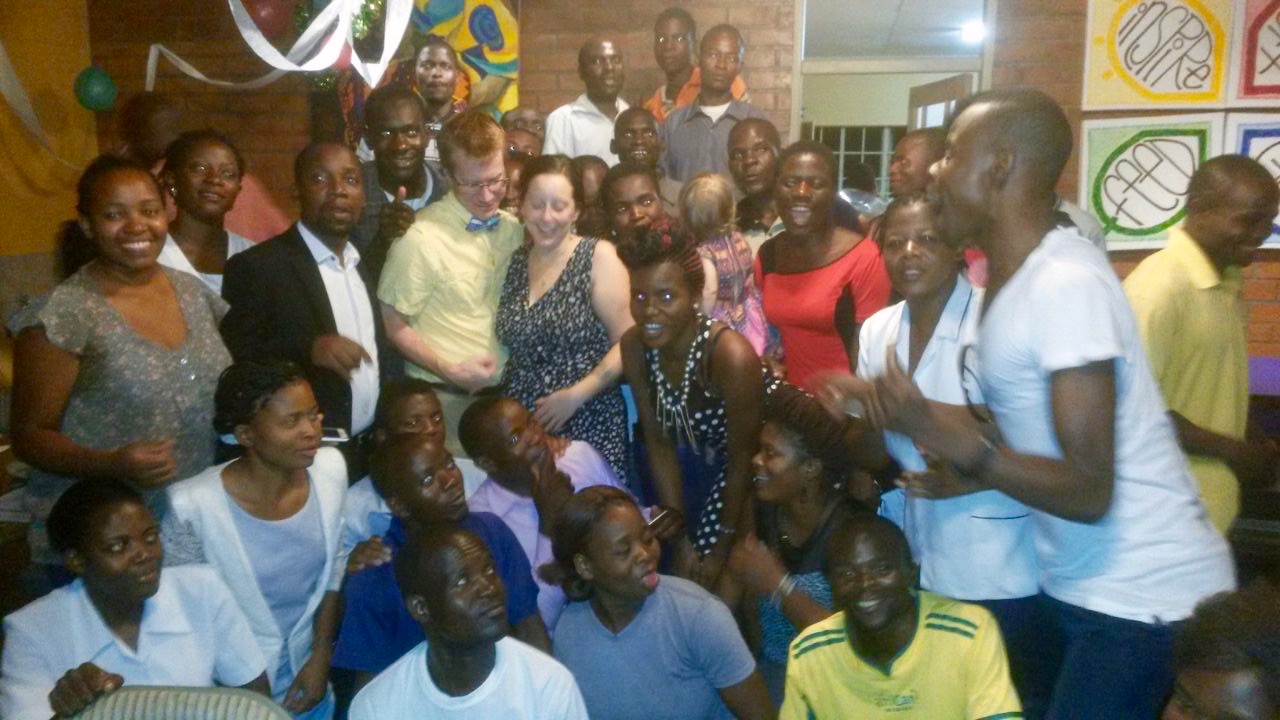
Also, this week, the hospital staff and others from the CLI community had a farewell party for our family. The event was amazing and we cannot thank the staff here in Malawi enough. They are not just colleagues or even friends, but have become family over the past two years. We will have some video and pictures in our next blog post.
We are preparing to leave Malawi and travel to the US for the holidays. Our schedule is crazy when we arrive and doesn’t slow down until we get on the plane to Kenya. We will be landing in Houston, traveling to Dallas, then to Saint Louis, back to Dallas, over to Abilene, and back to Houston. Of course, there will be some other stops along the way but please keep our family in your prayers as we have a lot of travel ahead of us. Our target date for leaving for Kenya is still the first week of March.
FAMILY UPDATE:
Sophia is so close to walking but is taking a couple of steps at a time (literally). She takes about 4-5 steps before she belly flops into our arms. We have been doing some at home exercises to strengthen her core (baby planks) and quads (baby squats). Likely she will start walking right before our 27 hours of air travel next week. We are really excited to see family and friends again while we are in the US and to spend this Christmas with family.
Sophia’s Favorite Things: Wet wipes (cleaning the tables, the floor, her own feet), reading books (especially in her car seat which is upside down), destroying the shoe rack (at least 2 times a day!)
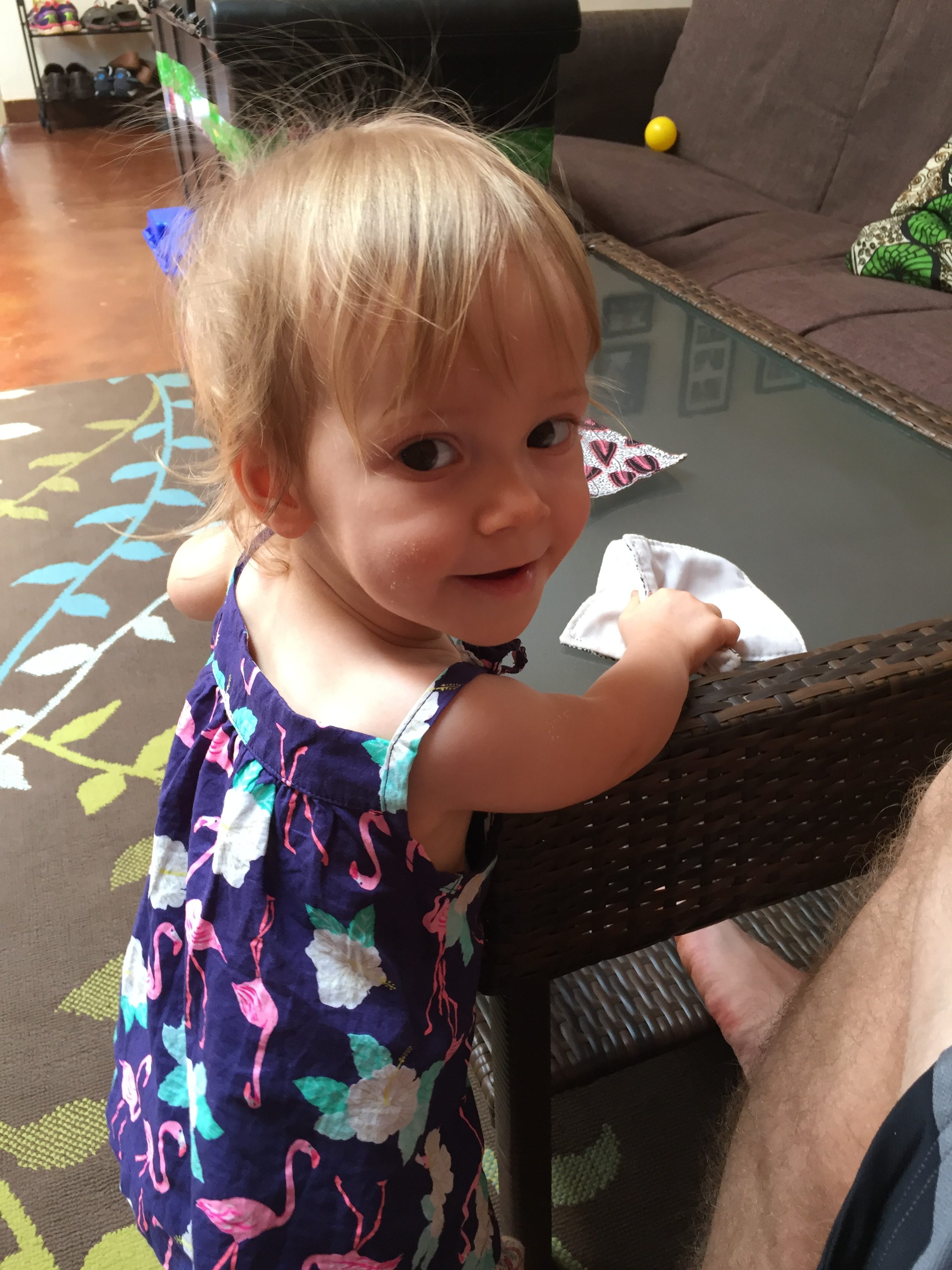
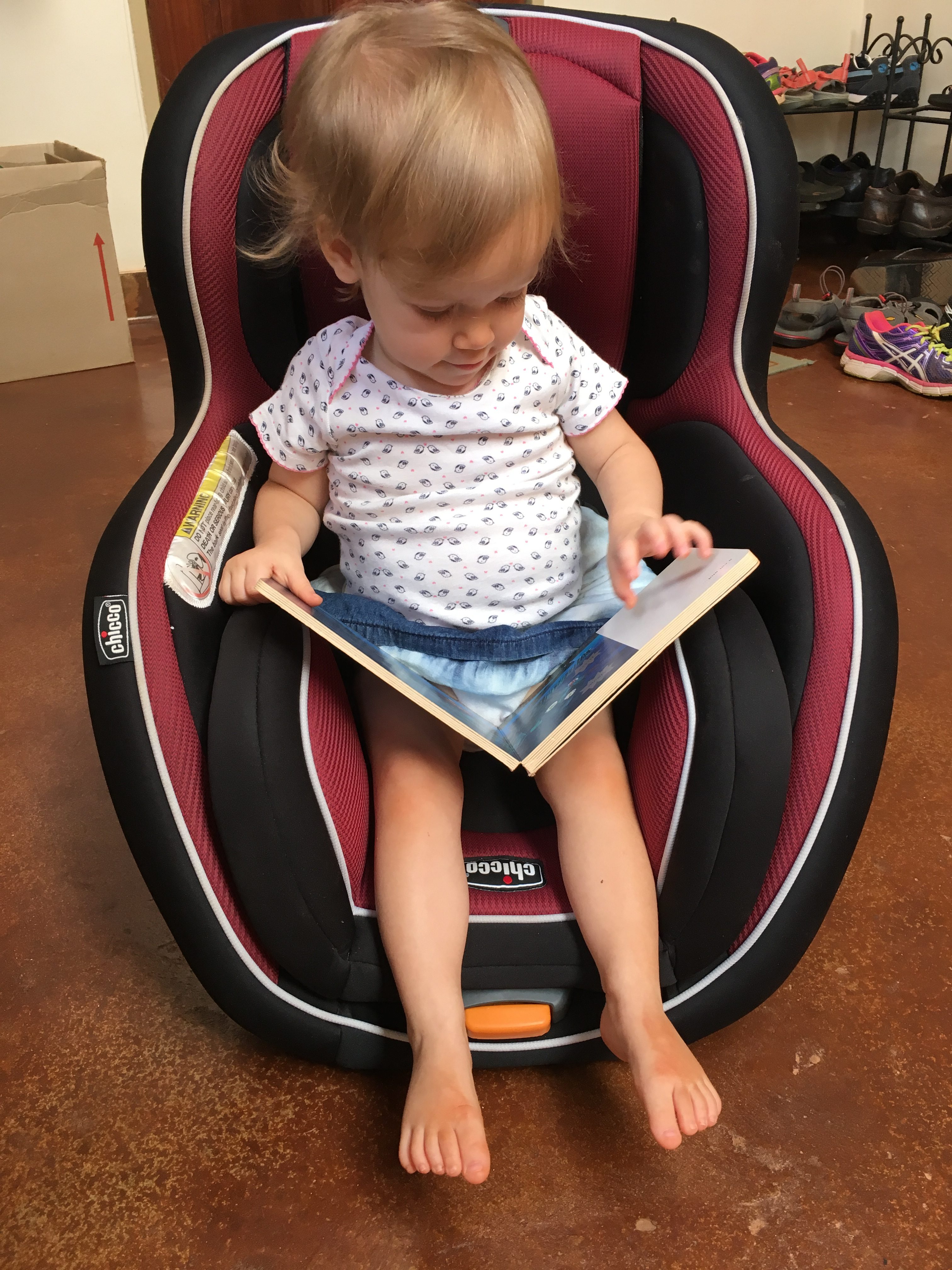
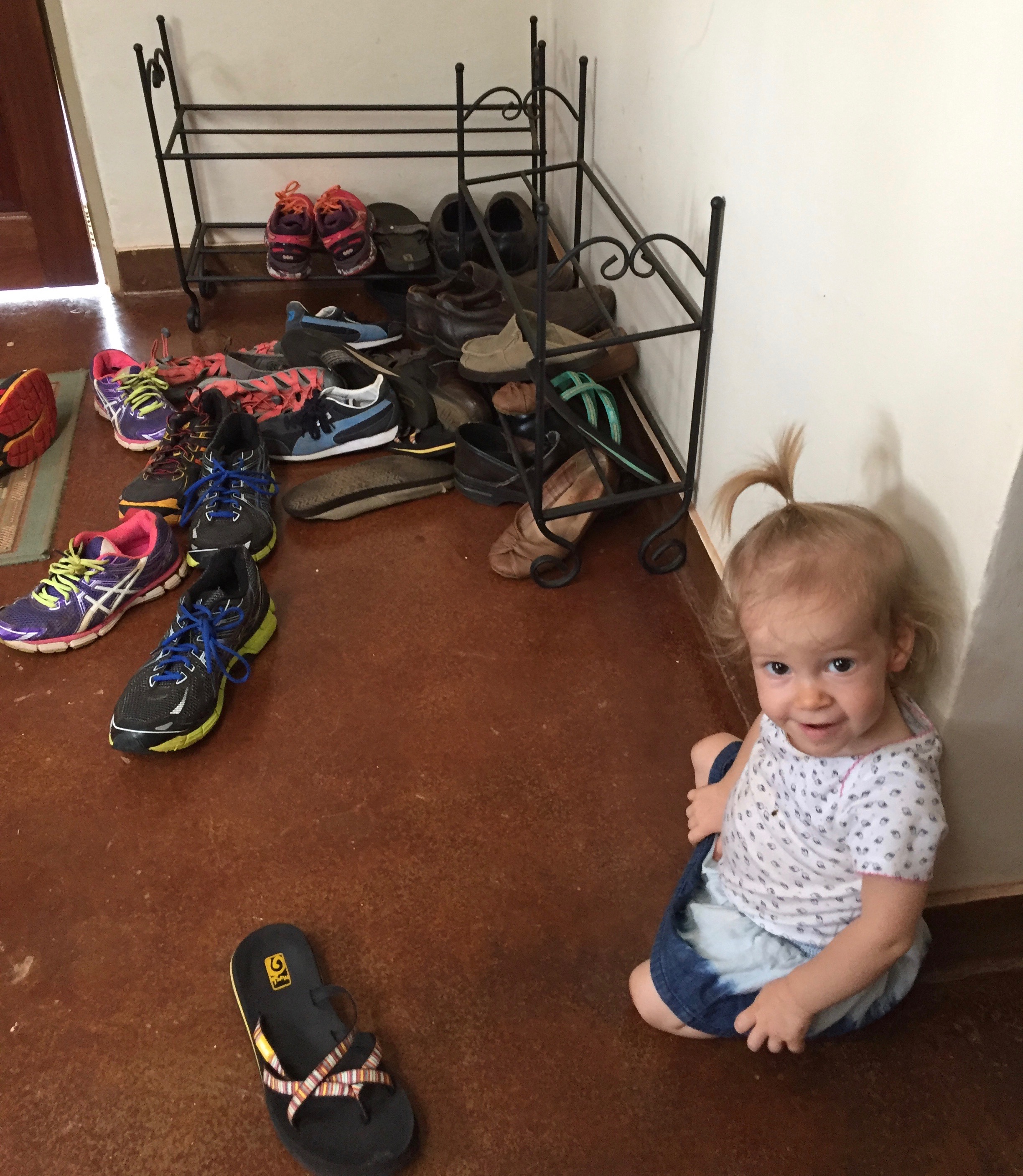
FUNDRAISING UPDATE:
We want to thank all those who are committed spiritually and financially in supporting us while we serve as Christian physicians in Africa.
Our work would not be possible without generous hearts. If you’re not already a monthly supporter, we ask that you consider becoming one. We need to raise support for our initial expenses in Kenya. Will you give a one-time gift this holiday season for our initial expenses? Click below to GIVE NOW online.
Checks should be payable to: Christian Health Service Corps (Write: “Project 145” on the memo line) Mail to: PO Box 132 Fruitvale, TX 75127
Blessings,
Jared, Jenny, & Sophia
